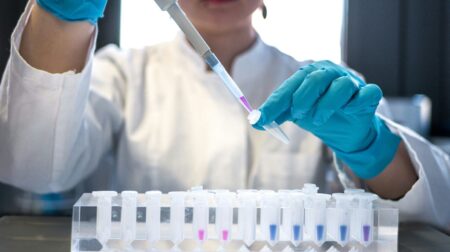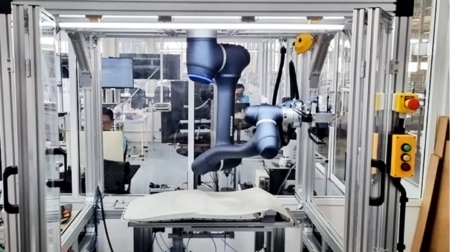A UK consortium has secured £22.6m funding for a five-year innovation initiative, the first for the Advanced Machinery & Productivity Institute (AMPI), which will be based in Rochdale, Greater Manchester.
The University of Manchester will take a key role alongside the National Physical Laboratory (NPL) other partners to stimulate and support the growth of the UK’s machinery manufacturing sector, as it transitions to highly integrated digital solutions with automated and autonomous robotic systems.
According to the project, it will enable invention, realise innovation, and increase the adoption of new machinery and robotics through UK equipment manufacturers.
Luke Georghiou, the University’s deputy president and deputy vice-chancellor, said: “We greatly welcome the opportunity AMPI gives us to work with NPL and our other partners to apply our strengths in advanced materials and related technologies to support leading-edge innovation.
“Bringing together these capabilities will support manufacturers in driving up productivity and making Rochdale and the North of England more generally a globally competitive hub for the sector.”
AMPI aims to grow the UK’s advanced machinery capability to a £2bn export capacity within 10 years, establishing over 30,000 high value manufacturing sector jobs.
Peter Thompson, CEO of NPL, added: “We are delighted to be leading a strong consortium of industrialists and academics who will be working together to develop the next generation of advanced machinery in a region rich in industrial capability and full of future potential.
“Measurement is vital to all advanced technology and it is particularly important for the accurate and reliable operation of advanced machinery and the quality of its outputs. Measurement is also a critical enabler for business growth, improving efficiency and productivity, providing confidence through verified products and quality control, as well as faster product development.
“We are ready to apply our world-leading metrology, the science of measurement, to industrial and applied innovation and to provide confidence in the data associated with this by evaluating uncertainty, providing traceability, and enabling reliable decision-making.”
Funding has been provided through UK Research and Innovation’s Strength in Places Fund (SIPF).








